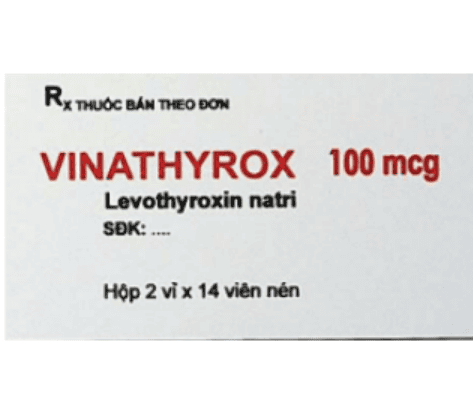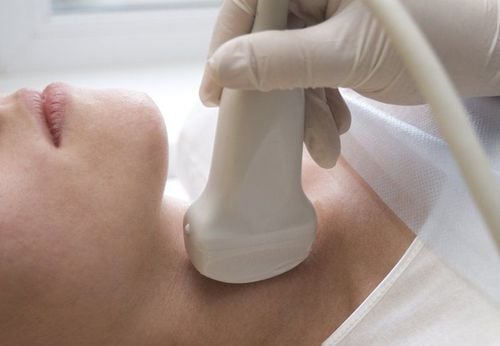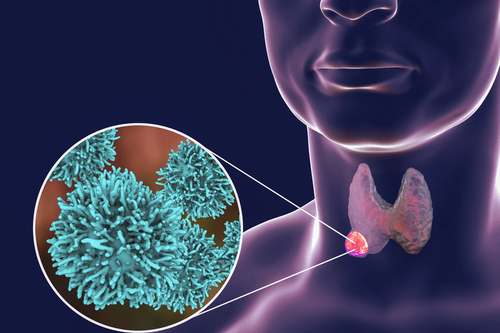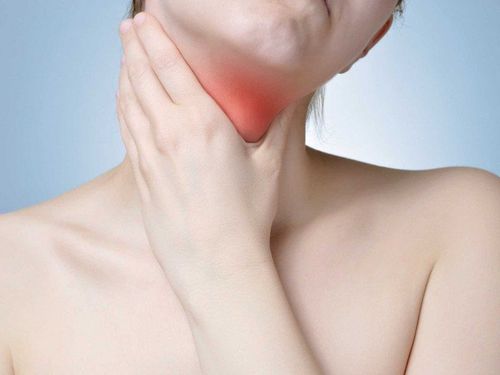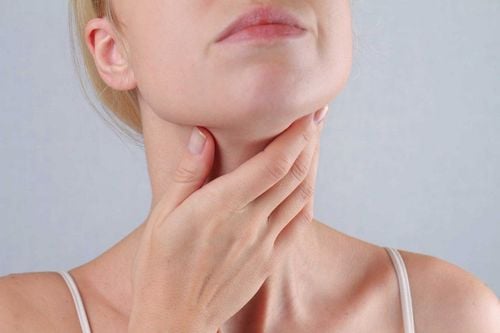This is an automatically translated article.
Basedow's disease is a common clinical diffuse goiter with main manifestations such as: poor thyrotoxicosis, diffuse goiter, bulging eyes and peripheral lesions.1. Learn about Basedow's disease
1.1 What is Basedow's disease? Basedow is also known as bulging goiter, toxic goiter, this is an endocrine disease caused by over-activation of all thyroid gland activities and the prevalence is 20% in men, 80% in women. .
1.2 Causes of the disease The cause of Graves' disease is because the immune system produces antibodies and fights against its own organs. Here, these antibodies will adhere to the surface of the thyroid gland, causing the thyroid hormone to increase too much. Besides, some factors can cause this disease include:
Pregnancy, especially the postpartum period Excessive use of iodine Taking lithium drugs alters the immune response Infection, viral infection Stop sudden corticosteroids. Hereditary Stress. 1.3 Symptoms of Basedow's Disease Symptoms of Graves' disease include the thyroid gland and outside the thyroid gland.
1.3.1 In the thyroid gland Graves' disease appears to be a large, diffuse, elastic, or slightly stiff goiter. There are symptoms in the neck area such as red, hot skin, increased sweating due to vasomotor disorders in the neck. However, there are still some patients based on Graves who do not have large goiter due to antibody related cause. Thyrotoxic syndrome affects many different organs such as: Cardiovascular, neuromuscular, digestive, urinary, skin and other dependent organs... 1.3.2 Outside of the thyroid gland Eye damage : Pseudobulbar and endocrine bulging Myxedema: Very low incidence, usually found on the front of the legs, below the knees or sometimes the lesions radiate from the lower extremities to the feet. Enlarged extremities: Fingertips and feet are deformed in the shape of drumsticks, with the phenomenon of nail loss.
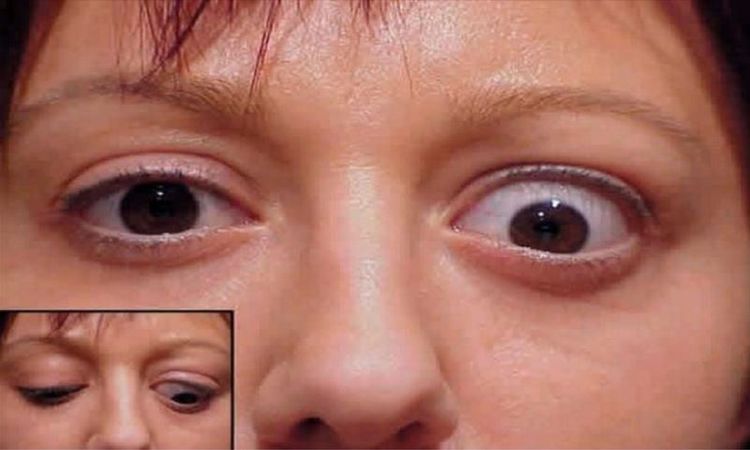
Hình ảnh mắt lồi do bệnh Basedow
1.4 Diagnosis of the disease Graves' disease is diagnosed by the following methods:
Evaluation of peripheral thyroid hormone toxicity Radiation testing Quantifying thyroid hormone Quantifying TSH levels in the blood Testing the role of the pituitary gland Thyroid tests include the TRH test and the Werner test Anti-thyroid autoantibodies Anti-TSH receptor antibodies Serum Thyroglobulin Thyroid ultrasound.
2. Treat basedow with antithyroid drugs
2.1 What are antithyroid drugs? Antithyroid drugs work by preventing the thyroid gland from producing extra hormones by both intrathyroid and extrathyroidal mechanisms.Treatment basedow with antithyroid drugs is a method often chosen by doctors in Japan and Europe because of the advantage of preventing hyperthyroidism without destroying the patient's thyroid gland.
Antithyroid drugs will be indicated for use in 3 phases including: Phase 1 continuously for the first 1-3 months with high doses and when thyroid hormone levels return to normal, switch to the maintenance phase; Use the drug for 12-18 months at a dose equal to 1⁄2 of the loading dose. Finally, the consolidation phase so that the disease does not recur, take medicine for 6-12 months. The patient is considered euthyroid when:
Heart rate < 90 beats/min Weight gain Autonomic symptoms disappear Basal metabolism is normal I131 Concentration at 24 hours < 30% PBI Blood levels return to normal. Blood levels of T3, T4, and TSH are normal. Currently, in our country, there are antithyroid drugs that are synthesized as MTU (methylthiouracil), PTU (propylthiouracil), neomercazole (1-methyl-2). -thio-3-carbethoxy imidazol)v.v... However, if Graves' disease is treated with antithyroid drugs, it is quite complicated and takes a long time, patients need to actively coordinate with doctors to achieve good results. best. Moreover, the treatment of Basedow with antithyroid drugs alone, the recurrence rate is up to 75%. Treatment of basedow with antithyroid drugs is contraindicated in the following cases:
Tumor with thyrotoxicosis Retrothoracic tumor with symptoms of thyrotoxicosis Thyrotoxicosis in pregnant women.

Bác sĩ có thể sử dụng thuốc kháng giáp trong điều trị basedow
2.2 Disadvantages of treating basedow with antithyroid drugs Although the use of antithyroid drugs to treat Basedow is usually indicated in most cases; However, besides the therapeutic effect, antithyroid drugs still have the disadvantage of causing unwanted side effects.
With the use of any drug, side effects are inevitable and when taking antithyroid drugs, patients may experience some reactions such as: itching, rash, fever, swelling numbness, pain headache, heartburn, nausea, muscle pain, joint pain.... more dangerous can lead to: agranulocytosis, hepatitis, liver failure, vasculitis...
For patients who want to carry In future pregnancies, the use of antithyroid drugs Carbimazole can be teratogenic, usually the doctor will replace it with Propylthiouracil, but small amounts may still be present in breast milk.
Please dial HOTLINE for more information or register for an appointment HERE. Download MyVinmec app to make appointments faster and to manage your bookings easily.




